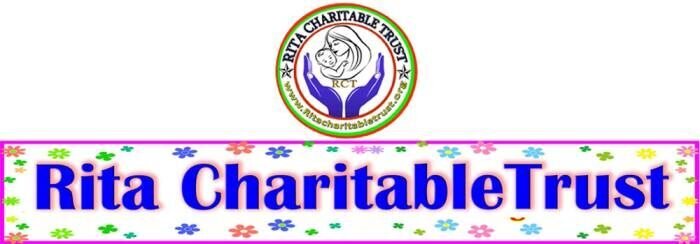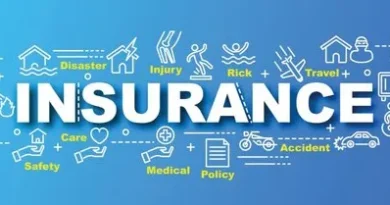Free Debt Recovery Agent Course (6Months)
Debt Recovery Agent:

Brief Job Description:
Debt Recovery Agents (DRA) are representatives appointed by
banks and lawful debt collection agencies to act as their agents and make calls or visit
debtors to collect payments on any kind of past due bill without violating the regulations
implemented by RBI.
Debt recovery agents are also responsible for providing debtors every important detail of
their loan’s terms & conditions and guide them accordingly for the payment.
Personal Attributes:
The individual is required to have good interpersonal and problem
solving skills. The individual must be self-driven and organized with their work and act
with integrity when performing multiple tasks for the customers
Banking Basics & Loan Products:
Banking basics with knowledge of various credit products
To be competent, the user/individual on the job must be able to:
PC1. List the principles of banking, the structure and functions of banking
PC2. Differentiate various types of loans and credit products
Structure and basic function of banking
To be competent, the user/individual on the job must be able to:
PC3. Detail important features of a bank and approach customers accordingly while collecting dues
PC4. Make debtors aware of the type of loan taken and guide them properly to pay off the dues
Essential details of e-banking & KYC norms
To be competent, the user/individual on the job must be able to:
PC5. Handle collection cases involving retail banking customers
PC6. Disclose the right amount of information to the customers as per bank’s regulations and obligations
PC7. Help customers and debtors with adequate knowledge of E-banking and KYC norms.
Recent trends in banking
To be competent, the user/individual on the job must be able to:
PC8. Be well aware of recent banking trends Perform
General/ Administrative Tasks
To be competent, the user/individual on the job must be able to:
PC9. Analyze the changes in banking trends and assume the impact they may have on the borrowers and on the financial institutes.
PC10. Prepare and submit all the periodic collection reports to the respective authority of bank or collection agency.
PC11. Discuss collection related problems with seniors and supervisors in case of escalation
Organizational Context
The user/individual on the job needs to know and understand:
KA1. Organizational & ethical standards of financial institutions.
KA2. Types and features of various kind of loans and credit products that banks offer to customers
KA3. RBI guidelines to proceed with debt collection as per organizational guidelines
KA4. Standard operating procedure for performing the recovery agent’s function
KA5. Banking regulations relevant to the credit products offered to the customers
KA6. Legal & regulatory aspects related to debt recovery
KA7. The documentation process of collecting due debts as per organizational guidelines.
KA8. Risk compliance and risk associated with various credit products.
KA9. Types of customer segments and their suitability to products they are planning to utilize.
KA10. Methods to map customer’s competency to pay off the loan or dues.
KA11. Security procedures for handling confidential customer information
KA12. Timing and schedule for visiting customers for collection
Technical Knowledge
The user/individual on the job needs to know and understand:
KB1. Types of loan products and credit cards offered and their details.
KB2. Products offered by various other financial institutions including other banks, NBFCs, money lenders etc.
KB3. Bank’s objectives, its role, functions and structure
KB4. Rules and regulations regarding retail banking and E-banking KB5. Basic KYC norms
KB6. Procedure for digitally updating customer’s loan details, if required.
KB7. Making calls to debtors for collection
KB8. Inform customers about the regulations in case of consumer loan default.
KB9. Be aware of recent banking trends regarding credit products.

Generic Skills
Writing Skills
The user/ individual on the job needs to know and understand how to:
SA1. Prepare collection reports and summary of the documents for senior’s review.
SA2. Prepare overall progress report
SA3. Communicate clearly at least in one language
Reading Skills
The user/individual on the job needs to know and understand how to:
SA4. Read and understand organizational and regulatory guidelines
SA5. Read about the products and services with reference to the
organization.
SA6. Keep abreast with the latest knowledge/standards/practices on the legal front including RBI guidelines by reading newspaper, pamphlets, website etc
SA7. Read and verify legitimacy of documents submitted by debtors
SA8. Read and explain terms and conditions of various bank products to debtors
Integrity
The user/individual on the job needs to know and understand how to:
SA9. Maintain integrity with respect to debtors’ time and confidential information
SA10. Act objectively and in the best interests of customers
SA11. Respect debtors’ dignity and personal space.
Oral Communication (Listening and Speaking skills)
The user/individual on the job needs to know and understand how to:
SA12. Listen to the customer’s problems to provide them the right solution for quick repayment.
SA13. Discuss & communicate to customers regarding collections & non-payment consequences..
SA14. Question appropriately in order to understand the nature of the problem and make a diagnosis.
SA15. Perform the task with clarity in understanding of the situation of repayment/non-repayment.
SA16. Communicate clearly with the customer using language that he/she understands well.
SA17. Communicate and share knowledge with peers and supervisors.
Professional Skills
Decision Making
The user/individual on the job needs to know and understand how to:
SB1. Determine the exact issue customer is facing while paying the dues.
SB2. Make clear, logical decisions on how to deal with adamant debtors who refuse to pay.
Plan and Organize
The user/individual on the job needs to know and understand how to:
SB3. Plan appointments with debtors as per their convenience to meet and talk about the dues.
SB4. Be prepared with all the essential due account’s detail prior to the meeting.
SB5. Organize work & time in order to maximize productivity
SB6. Follow-up properly with debtors and provide support services needed for quick repayment.
Attention to Detail
The user/individual on the job needs to know and understand how to:
SB7. Apply good attention to detail
SB8. Check that the work done is completely free from error
SB9. Get the work checked by superiors
Problem Solving
The user/individual on the job needs to know and understand how to:
SB10. Address problems arising due to customer non-cooperation or administrative fault and escalate those issues beyond one’s role.
SB11. Refer the anomalies to supervisor
SB12. seek clarification on problems from others within the team
Analytical Thinking
The user/individual on the job needs to know and understand how to:
SB13. Analyze data, debtor’s financial activities and severity of delinquency
SB14. Assess debtor’s financial status and go ahead with the collection procedure
SB15. Draw insights from the interaction with debtor to solve the issue
Motivation
The user/individual on the job needs to know and understand how to:
SB16. Be self driven, take initiatives and deliver results set by the organization and respective superiors
Critical Thinking
The user/individual on the job needs to know and understand how to:
SB17. Provide opinion on work in a detailed and constructive way
SB18. Consistently obtain feedback and improve their performance
SB19. Exercise judgment in unforeseen situations which preserve company values and are in line with organizational guidelines
Operational Aspects of Debt Collection:
of operational aspects of debt collection to perform the task of collection lawfully
To be competent, the user/individual on the job must be able to:
PC1. Understand the legal aspects of contract
PC2. Know all the elements of debt recovery arrangement
PC3. Perform the verification of debtor’s due account’s details in a legitimate way.
Skills, procedure and per-requisites for lawful debt collection
To be competent, the user/individual on the job must be able to:
PC4. Enquire and gather information about the financial record and loan details of the debtor before going ahead for the collection
PC5. Work as per the legal and regulatory framework for debt recovery
PC6. Collect and preserve all the financial documents/information of debtor with his/her consent in a secure way
Ethical debt collection practices
To be competent, the user/individual on the job must be able to:
PC7. Reveal all the detail of the bank or collection agency he/she is associated with to the debtor
PC8. Elucidate, in case debtor has any doubt regarding the due amount or any other detail
PC9. Follow the proper selling function and keep debtors Informed
PC10. Assist bank and collection agencies by providing further
Adequate knowledge of RBI guidelines
To be competent, the user/individual on the job must be able to:
PC11. Receive notification from bank regarding the RBI guidelines
PC12. Inform debtors about bank’s rules and regulations of repayment.
The code of conduct that should be followed by recovery agents
To be competent, the user/individual on the job must be able to:
PC13. Plan future follow-up visits to debtors General/ Administrative
To be competent, the user/individual on the job must be able to:
PC14. Update details and status of due accounts into information system/records.
PC15. Prepare and submit all the periodic reports on status of due accounts to the supervisor/ manager
PC16. Discuss and set revenue/collection targets with supervisor/manager if applicable
PC17. Prepare reports on targets achieved and review future targets.
PC18. Follow proper procedures as laid down by the bank in handling sensitive and confidential customer information
Organizational Context
The user/individual on the job needs to know and understand:
KA1. The ethical standards a financial institute follows while collecting dues.
KA2. The roles and responsibilities of the job – bank’s and collection agency’s expectations of the role
KA3. The regulatory system of RBI that governs banks and their impact on the collection procedure.
KA4. Requirements for KYC Norms, acceptable options of identity & address proof, supporting documents required and other identification procedures.
KA5. Escalation matrix in the case debtor refuses to cooperate.
KA6. The organization’s accepted methods of repayment & the respective process.
KA7. Risk compliance and risk associated with various products.
KA8. Methods to calculate interest & principal amounts for loans repayment.
KA9. Various modes of payment available to the customer.
KA10. Procedure for assisting debtors with the selection of best suitable repayment option.
KA11. The organizations’ policy of privacy & discretion when dealing with debtor’s confidential information.
KA12. All relevant legal procedures involved in debt collection.
Technical Knowledge
The user/individual on the job needs to know and understand:
KB1. Calling debtors to collect information on their account
KB2. Communicating sensitively & explaining NPA norms and consequences of non-payment
KB3. Financial institute’s and collection agency’s objectives, functions and structure
KB4. Performing due diligence on the account
KB5. Performing background checks on the account
KB6. Collection of payments on past due accounts
KB7. Maintaining MIS of non-payment accounts
KB8. Procedure to digitally update customer account details, if required.
KB9. Factors that impact the creditworthiness of the customer.
KB10. Repossession of asset through legal procedures
KB11. Basic accounting and financial concepts such as interest rates, profit/loss etc. of each customer when working on a financial plan

Generic Skills
Writing Skills
The user/ individual on the job needs to know and understand how to:
SA1. Prepare collection reports and summary of the documents for senior’s review.
SA2. Prepare overall progress report and prepare for the next legal step accordingly for lawful debt collection
Reading Skills
The user/individual on the job needs to know and understand how to:
SA3. Read and understand organizational and regulatory guidelines
SA4. Be aware of bank specific rules & procedures for loan recovery
SA5. Read and verify legitimacy of documents submitted by customers, if required
SA6. Read and explain terms and conditions of various bank products to debtors, if required
Integrity
The user/individual on the job needs to know and understand how to:
SA7. Maintain integrity with respect to customers’ time, sensitive documents and communicate clearly with the customer using language that he/she understands.
SA8. Act objectively and in the best interests of customers
Oral Communication (Listening and Speaking skills)
The user/individual on the job needs to know and understand how to:
SA9. Listen to the customers and be able to find a legal solution for quick repayment.
SA10. Communicate clearly with the customer using language that he/she understands.
SA11. Communicate and share knowledge with peers and supervisors.
SA12. Follow the most effective style of negotiation
SA13. Communicate assertively while dealing with adamant debtors
Professional Skills
Decision Making
The user/individual on the job needs to know and understand how to:
SB1. Determine what what technique of collection will be most effective how to follow it.
SB2. Make clear, logical decisions and portray confidence while talking to the debtor.
Plan and Organize
The user/individual on the job needs to know and understand how to:
SB3. Plan appointments with debtor without intruding into his/her personal time.
SB4. Organize meetings keeping the personal obligations of debtor in mind..
SB5. Organize work & time in order to maximize the chances of collecting dues.
Customer Centricity
The user/individual on the job needs to know and understand how to:
SB6. Follow etiquette while talking to the debtor over the phone
SB7. Call at the right time for debt collection
SB8. Focus on educating customers regarding consequences of non-payment
SB9. Follow-up and provide customer support services consistently
Problem Solving
The user/individual on the job needs to know and understand how to:
SB10. Address problems arising due to lack of proper information regarding loan or credit cards.
SB11. Use soft skills to solve communication problems and follow up with debtors effectively.
Analytical Thinking
The user/individual on the job needs to know and understand how to:
SB12. Assess debtors financial status and understand their capacity to pay off the loan on time
SB13. Draw insights from debtor’s interaction and refine collection techniques
Motivation
The user/individual on the job needs to know and understand how to:
SB14. Be self driven, take initiatives and deliver results set by the organization and respective superiors.
Critical Thinking
The user/individual on the job needs to know and understand how to:
SB15. Consistently obtain feedback and improve their performance
SB16. Exercise judgment in unforeseen situations which preserve bank’s values and are in line with organizational guidelines
Soft Skills:
Call debtors keeping the time-frame in mind
To be competent, the user/individual on the job must be able to:
PC1. Follow a suitable style of communication that customer finds convenient.
PC2. Listen to the queries and complaints debtors have and understand them
PC3. Be aware of debtor’s privacy and avoid calling at ungodly hours (Before 9a.m. or after 7p.m.)
PC4. Disburse cash for withdrawals made by customers
Talk to debtors professionally without crossing the limit of decency
To be competent, the user/individual on the job must be able to:
PC5. Follow telephonic etiquette while calling debtors
PC6. Take care of personal etiquette while meeting debtors in person
PC7. Negotiate with debtors in a smart and effective way
Resolve debtor payment related queries lawfully
To be competent, the user/individual on the job must be able to:
PC8. Lawfully persuade debtors in case of delay in repayment.
PC9. Avoid getting violent or abusive while dealing with debtors who are not willing to pay.
PC10. Inquire debtors about the payment related problems they are facing and analyze them to find out a sensible solution.
PC11. Convince debtors to pay off the dues by informing them about the non-payment penalties
PC12. Show good analytical ability to find out proper solution in case the debtor refuses to pay off the dues.
General/ Administrative
To be competent, the user/individual on the job must be able to:
PC17. Update details of total collection into information system/records
PC18. Prepare periodic reports on status of default customers and bank transactions to supervisor/Manager
PC19. Prepare reports on targets achieved and review future targets.
PC20. Follow security procedures when handling payment cash and cheques, customer confidential details etc.
Organizational Context
The user/individual on the job needs to know and understand:
Organizational standards and policies of debt collection The importance of interpersonal behavior while dealing with customers Banking regulations relevant to consumer protection Proper timing and situation to make a collection call The best ways to negotiate with debtors Differentiate between debtors who cannot pay and debtors who are not willing to pay through analytical ability The importance of providing complete details of the financial institute and the agent himself/herself associated with it while calling for collection. Security procedures for keeping customer’s account information confidential. Understand customer policies & procedures Value of smart communication in negotiation
Technical Knowledge T
he user/individual on the job needs to know and understand:
KB1. Technical details of making a phone call.
KB2. The use of information technology to input and/or extract data accurately
KB3. Importance of identifying anomalies in data and refer them to the higher authority
KB4. How to store and retrieve information
KB5. Importance of objectives, work requirements and deadlines
KB6. Necessity of keeping up to date with changes, procedures and practices in the field of expertise
Communication Skills
The user/ individual on the job needs to know and understand how to:
SA1. Communicate with debtors without any hint of insult
SA2. Make debtors agree to pay.
Team work
The user/individual on the job needs to know and understand how to:
SA3. Contribute to the quality of team working
SA4. Work independently in a team environment
SA5. Work independently and collaboratively
Integrity
The user/individual on the job needs to know and understand how to:
SA6. Maintain integrity with respect to customers’ time, sensitive documents.
SA7. Communicate professionally with the customer without using foul language
SA8. Act objectively and in the best interests of customers
Oral Communication (Listening and Speaking skills)
The user/individual on the job needs to know and understand how to:
SA9. Listen to the customers’ problems carefully enough.
SA10. Communicate clearly with the customer using language that he/she understands well.
SA11. Communicate and share knowledge with peers and supervisors.
SA12. Communicate assertively while dealing with adamant debtors
SA13. Make decisions in a smarter way
. Professional Skills

Decision Making
The user/individual on the job needs to know and understand how to:
SB1. Make decision regarding escalation of a collection issue.
SB2. Make clear, logical decisions and portray confidence to the customers without deceiving.
Plan and Organize
The user/individual on the job needs to know and understand how to:
SB3. Plan meetings keeping customer’s schedule in time.
SB4. Organize collection activities properly to increase overall productivity.
Customer Centricity
The user/individual on the job needs to know and understand how to:
SB5. Make decisions taking into account customers’ best interests
SB6. Focus on developing long term customer relationships
SB7. Follow-up and provide support services consistently
SB8. Plan visiting customers only when they are available at home
Problem Solving
The user/individual on the job needs to know and understand how to:
SB9. Address problems arising either due to a technical issue, customer or administration related issues and escalate those issues beyond one’s role.
Analytical Thinking
The user/individual on the job needs to know and understand how to:
SB10. Assess debtor’s financial issues and help him/her with the right repayment option
Motivation
The user/individual on the job needs to know and understand how to:
SB11. Be self driven, take initiatives and deliver results set by the organization and respective superiors
Critical Thinking
The user/individual on the job needs to know and understand how to:
SB12. Communicate with superiors to analyze performance and improve it in the long run
SB13. Critically examine debtor’s behavior and proceed accordingly for debt collection.










